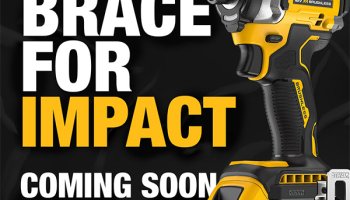
If you buy something through our links, ToolGuyd might earn an affiliate commission.
Earlier today I posted about press/media-type questions that a tool brand is apparently declining to answer, and I have been thinking it might be interesting for you hear about why this is important to me.
Why are information and insights so important? Why am I so adamant in understanding individual tools, tool brands, and the larger industry as comprehensively as possible?
My background is in the hard sciences. I’m not a tradesman or contractor, and so my focus here at ToolGuyd has always been on gathering deeper information and insights.
There are benefits to this – I’d argue – because if you put a group of different carpenters, electricians, plumbers, or any other type of user in a room, chances are they would all have different recommendations and opinions. There are some shared opinions about tools, of course, but very different preferences.
If you’re interested in learning more about a particular tool, your particular needs and usage contexts are important, and they come into play in how you apply the information, context, and insights provided in a post.
If you are curious about my opinion on a specific angle, that’s what the comments section is for. At the time of this posting, there are 159,810 published comments, with 16,231 of them my own.
A self-identifying influencer plumber argued with me two years ago, saying they’d trust a plumber’s recommendation over that from someone who isn’t a plumber. That’s not unreasonable, and it’s also why I focus on conveying information and insights. For the most part, it’s not my intent to tell anyone what to buy, but to give you the information you need to make such determinations for yourself.
This is why information, insights, and context are important.
In looking at tools, I ask why should I care? Why should readers care? What is important to readers?
The better I understand a product, the more competently I can discuss it. Otherwise I’m just guessing, and while I have more than 12 years of experience in the tool reporting industry and countless hours of varied user experiences, inference is more helpful for readers than conjecture.
Early on, this approach was crucial in ensuring accurate reporting, and it became a good habit to maintain. The more I learn, the more I can pass on to readers, and this must go beyond simply repeating what is said on a product page or press release.
Consider Milwaukee’s M12 cordless torque wrench, which is aimed at electricians, mechanical professionals, and other such users. This is not in my wheelhouse, and their product manager was happy to share deeper insights about the product and the user needs it was designed for. To sufficiently discuss this product, I had to learn more than what a typical press release or product page could convey.
Some tool brands, however – especially in today’s “influencer” day and age – don’t care about accurate reporting, they’d be happier if I just parroted their marketing claims. But that doesn’t help me educate you as to a product’s features, benefits, and suitability for your needs.
If a ToolGuyd post does not provide you with any more value than a brand or retailer’s product page, then what would be the point?
Luckily, many brands are happy to discuss their products and brand philosophies, and I talk to quite a few product managers and engineers every year that build upon my industry knowledge.
Nearly 20 years ago, I took a college history course on early modern Europe, and the professor insisted that history was not as much about what or when but about why. This stuck with me.
In writing about tools, deeper insights and answering “why” type of questions is still very important. After all, this is how I make my own purchasing decisions. Why buy one brand or style of tool over the other? Answering these questions for myself helped lay ToolGuyd’s foundation so long ago.
Now, with many types of tools being far more complex than ever – and not just cordless power tools but hand tools and storage products as well, some deeper insights and information must still come “straight from the horse’s mouth.”
Anybody – and seemingly everybody these days – can copy and paste a few lines from a press release. That’s not what ToolGuyd is about.
Some brands now only provide review samples to paid or favored “influencers” and “ambassadors” they think will most enthusiastically endorse their products. That’s their prerogative. But if I can’t report on tools as comprehensively as I strive for because brands no longer believe in journalistic relationships, that’s a problem.
Fueling my frustrations, some brands’ in-house or 3rd party marketing, PR, or social contacts are simply inept.
I recently asked a PR contact for more information about their brand’s newly launched product line, and this is what the product manager passed along:
IMPROVED DESIGN AND INNOVATION: More features and innovation with an improved look
LOWER RETAIL PRICES: Better products at better prices than the leading competitor
There’s a little more, with similar vagueness, but it gives away too much in potentially identifying the brand. What am I supposed to do with this? What am I supposed to do when a brand declines to answer what I feel are reasonable questions?
If a brand withholds samples because they have a grudge against me or their marketing team completely switched over to influencer marketing – and some have done this – I can always partner with a friendly retailer or whip out a credit card.
Some brands have always been difficult to work with, but perhaps influencer marketing practices have led them to value paid or favored voices over ToolGuyd’s? Am I to respond in kind?
For other brands that are only now getting into PR and social marketing, hundreds of influencers have their hands out for free products, and it seems they assume that’s all anyone wants.
What am I supposed to do when brands ignore press inquiries, or worse – respond with non-answers I can’t use in any way? This doesn’t only affect my understanding of a product or lineup, it limits the value and insights you can glean from a post or my reporting, and that’s the big problem here.
How do I treat brands for which ineffectualness has become the trend rather than the exception?






